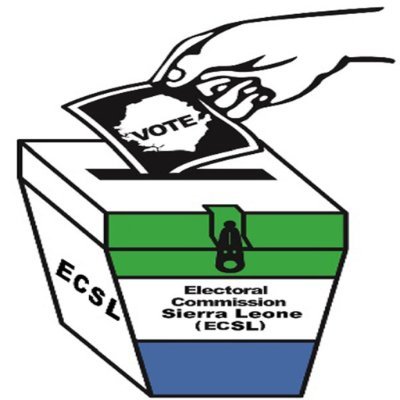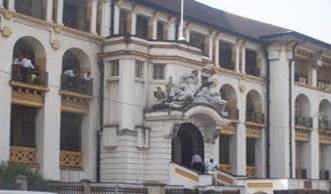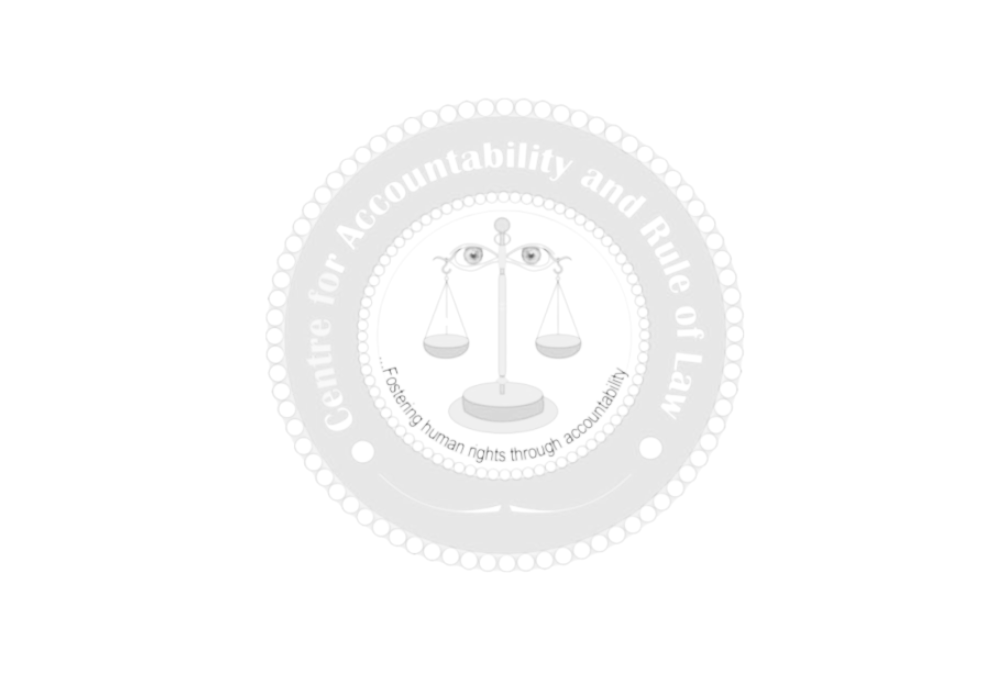
ELECTORAL JUSTICE AND SECURITY UPDATE FOR THE WEEK ENDING 25TH FEBRUARY, 2023
Please find below the 2nd weekly update on the Electoral Justice and Security project implemented with support from the Government of Ireland and OSIWA.
Read update here

Please find below the 2nd weekly update on the Electoral Justice and Security project implemented with support from the Government of Ireland and OSIWA.
Read update here

We are happy to bring to you our first weekly update for the Electoral Justice and Security project implemented with support from the Government of Ireland and OSIWA.
Read report here

3rd Februry 2023
STATEMENT BY CARL-SL ON THE SUPREME COURT DECISION RE CONSTITUTIONALITY OF THE PROPORTIONAL REPRESENTATION SYSTEM FOR GENERAL AND LOCAL COUNCIL ELECTIONS IN SIERRA LEONE
On the 27th January 2023, five Justices of the Supreme Court of Sierra Leone delivered a judgment in a case brought by two members of the main opposition All People’s Congress (APC) challenging the constitutionality of the proportional representation (PR) electoral system of voting for general and local council elections in Sierra Leone. The complainants had asked the court to declare that the president’s directive to the Electoral Commissioner ordering him to conduct the 2023 Parliamentary and Local council elections using the District Block PR electoral system was unconstitutional. They further asked the court to declare that it is unconstitutional for the Electoral Commission to use the District Block Proportional Representation System when “there are extant and subsisting constituencies”. The complainants also argued that the Proportional Representation System undermines democracy because it vests inordinate power in political parties, and deprives independent candidates from participating in the process.
In a unanimous decision read out by Chief Justice Desmond B. Edwards, the Supreme Court refused to grant the orders sought by the Plaintiffs, and held that the President was entirely within his rights when he directed that the general and local council elections be conducted using the PR electoral system. The Court disagreed with the Plaintiffs’ submission, and held that “constituencies have not been established in accordance with subsection 3 of Section 38” for the purposes of the 2023 elections. In other words, once a census has been conducted which shows population shifts and increases, the Court held that the Electoral Commission is required to delineate constituency boundaries. Unless such constituencies are delineated, the Court held that constituencies cannot be deemed to have been established for the purposes of the 2023 elections.
The Centre for Accountability and Rule of Law (CARL) welcomes the decision of the Supreme Court and accordingly notes the following:
Ahead of the 2023 elections, we are hopeful – and strongly urge the judiciary – to look into all election-related complaints based on their merits and with the same speed and transparency as the matter under review. CARL will continue to track and provide regular updates on all election-related disputes in Sierra Leone.
For additional information: contact ibrahim.tommy@gmail.com or +2327636549

Happy New Year, Partners!
Thanks to your immeasurable technical and financial support, we are pleased to inform you that we accomplished a number of critical milestones in 2021. As we begin a new year, I’d like to thank you, on behalf of the Board and staff of the Centre for Accountability and Rule of Law, for your extraordinary support to us over the years. The Covid-19 virus has had a significant impact on global economic and development programmes, including the work that organisations like ours do. During the past year, we continued to serve our communities by adapting to the many changes imposed on us by the Covid-19 virus. We are hopeful that 2022 will be much better in terms of our collective ability to respond to the virus and adapt to the emerging variants of the virus. Last year was an all-round good year for CARL in many respects, even though the organization grappled with many challenges. Thanks to our dedicated team at CARL and the immense support from you (our partners), we either accomplished or made significant progress on a number of organisational priorities for 2021. For instance, after years of advocacy, the Sierra Leone Police has finally ring-fenced a budget for the operations of FSU in 2022 (for the first time since the Unit was set up more than 20 years ago). This is expected to enhance the Unit’s ability to deliver on their mandate of investigating and prosecuting sexual and gender-based crimes. See full text of the message here

On the 23rd September 2021, His Excellency the President of the Republic of Sierra Leone, Dr. Julius Maada Bio, moved a United Nation Resolution on sexual violence survivors, a historic feature that marks the first time in the history of United Nation General Assembly for sexual violence survivors to be on the agenda. The resolution was approved by 193 member states, thereby according Sierra Leone the lead nation that other countries should seek permission from if they wanted to introduce a resolution under that agenda item.
…His Excellency’s sponsored resolution of access to service for victims of sexual violence is absolutely commendable, but his administration – like all other governments – can only give meaning to it by ensuring that the required support is provided to key agencies established to respond to the justice, health and social needs of victims. As the saying goes, all justice is local. Now is the time for the Bio administration to walk the talk by empowering the Family Support Unit and other service delivery agencies in order to respond to the needs of victims of sexual and gender-based violence in Sierra Leone. Read the full article here

We, the undersigned civil society organisations registered in Sierra Leone, wholeheartedly welcome the Sierra Leone Government’s nomination of Justice Tonia Barnett as Commissioner of the African Commission on Human and Peoples’ Rights. She still needs to be elected by experts drawn from the AU Assembly who are nominated by the State Parties to the African Charter on Human and People’s Right. The election is scheduled for 14th October, 2021. Justice Barnett’s nomination is a tribute to her decades-long commitment to public services, particularly the promotion and protection of women and children’s rights and the delivery of justice to all. We are absolutely confident that she will demonstrate the required objectivity, fortitude and fairness required of her role on the Commission. Given the very important work that the Commission does in terms of promoting and protecting human rights on the continent, we believe that Justice Barnett’s knowledge and unbridled commitment to human rights’ protection will strengthen the Commission and contribute to human rights jurisprudence on the continent…Read the full text here